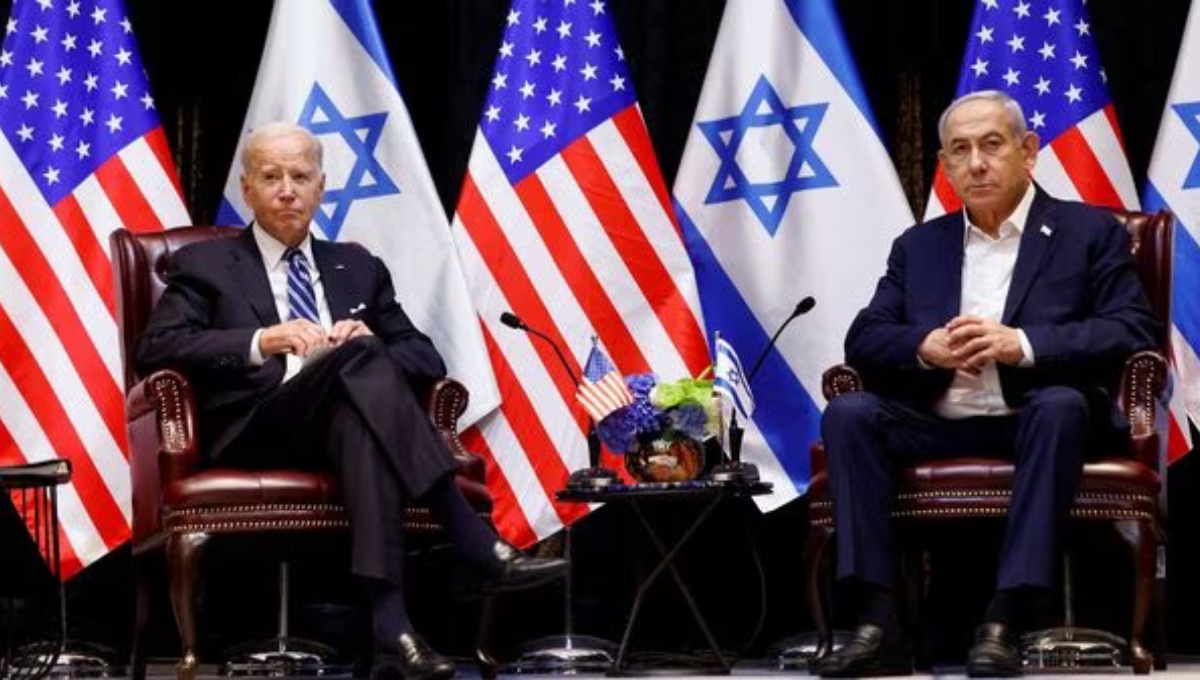In the wake of a deadly attack by Hamas on Israel that is termed as its own “9/11 moment” and referred to by Hamas as the “Al Aqsa Flood,” US President Joe Biden arrived in Tel Aviv with a pressing message. Seeking to prevent the Hamas-Israel war from spiraling into a broader regional disaster, Joe Biden’s crucial peace mission to Israel against repeating the mistakes that the US made in the aftermath of the 9/11 attacks.
After hundreds of people were reported killed in an explosion at Gaza Strip Hospital after the visit of Joe Biden’s. While Hamas pinned the blame on an Israeli airstrike, the Israeli military refuted the claim, stating a rocket had misfired by another Palestinian militant group. Significantly, Biden, after consultations with the Pentagon, expressed that evidence suggests Israel wasn’t behind the tragic event. During his meetings with Israeli Prime Minister Benjamin Netanyahu, Biden relayed this, stating that the attack “appears as though it was done by the other team.”
Beyond seeking clarity on the incident, Biden’s visit was also intended to ensure humanitarian aid could be dispatched to the Gaza Strip. He announced, “Israel agreed the humanitarian assistance can begin to move from Egypt to Gaza,” emphasizing the need for swift action to provide relief.
However, Biden’s peace mission has not been without its challenges. The hospital bombing, resulting in a considerable loss of life, fueled outrage across the region. In a significant setback, Arab leaders from Palestine, Jordan, and Egypt withdrew from a scheduled meeting with Biden in Amman. This move exemplified the complexity and risks associated with the president’s mission, which aimed to harness face-to-face US presidential influence to discourage escalation.
Historically, US leaders have consistently shown support for Israel, with several also venturing to the Middle East in the role of peacemakers. Despite his deep-rooted association and commitment to Israel, President Biden is also known for his empathy towards the Palestinians. His visit, though mainly to display solidarity, also serves to emphasize the need for a balanced, strategic response from Israel, especially given the broader implications for US interests.
There are tangible fears of a more expansive regional conflict, especially with Iran-backed elements positioned close to Israel’s borders. America’s dread of such an escalation has been evident, as seen by the movement of significant US combat equipment to the eastern Mediterranean.
Commencing on October 7, the conflict has grown to be the worst of the five conflicts in Gaza for both sides. According to the Gaza Health Ministry, throughout the previous 11 days, 3,478 Palestinians have died and over 12,000 have been injured. According to Israel, over 1,400 people have died there, and at least 199 more—including children—have been kidnapped by Hamas and transported into Gaza.
While the aspiration is for hope and history to align harmoniously, the prevailing sentiment suggests an increasing divergence, demanding an assertive, informed, and compassionate leadership stance.

